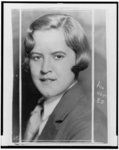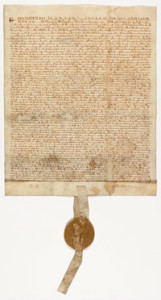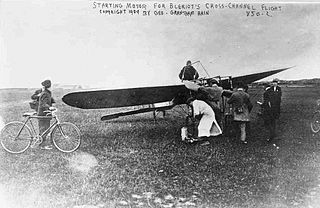Henry VIII married the first of his six wives, Catherine of Aragon, in 1509. A Spanish princess, Catherine was the widow of his brother, Prince Arthur. Children can learn more about all of his wives at: Wives.
Magna Carta was signed in 1215. King John I was forced to sign the document in Runnymede, England. Written in haste and in Latin, the Magna Carta was the first English document to outline human rights. Only four originals of the document still exist, and one copy resides in the National Archives in Washington, DC. Older children can read a translation at: Magna Carta.
Henry VIII and Catherine of Aragon were crowned in England in 1509. Catherine of Aragon, a Spanish princess and the widow of his brother Arthur, was the first of his six wives. Children can learn more about his six wives at: Wives.
Staffordshire Hoard was discovered in a field near Litchfield, England, in 2009. Over 3,500 items (mostly gold and silver) were found buried, and most of the items were made around the 7th century AD. The items are mostly military; no household items or women’s jewelry were found. Children can learn more at: http://www.staffordshirehoard.org.uk/.
Louis Bleriot became the first person to fly a plane across the English Channel. He left Les Baraques, France, in 1909 and landed in Dover, England. The trip took 36 minutes 30 seconds. The Daily Mail, a British newspaper, had offered a reward of £1000 to the first successful aviator. Bleriot received the reward, and he instantly became famous. Children could read the 1984 Caldecott Medal book The Glorious Flight: Across the Channel with Louis Bleriot, July 25, 1909 by Alice Provensen and Martin Provensen.

Gertrude Ederle
Gertrude Ederle in 1926 became the first woman to swim the English Channel. She swam for 14 hours 31 minutes from England to France. She returned to a ticker tape parade in New York City. Younger children could read America’s Champion Swimmer: Gertrude Ederle, by David A. Adler. At least 45 other people have successfully swum the English Channel.
Matthew Webb in 1875 became the first person to swim the English Channel. He started in Dover, England, and finished near Calais, France, less than 22 hours later. Since then, at least 1,831 athletes have successfully completed the swim, which is 21 miles at its narrowist point.
William the Conqueror arrived in England in 1066. The Duke of Normandy was expanding his realm. Born in France, he was the first Norman king of England, ruling from 1066 until his death in 1087.
Guy Fawkes Day is remembered in England. In 1605 at least eleven people plotted to blow up Parliament and kill political leaders, including King James I. They hid twenty barrels of gunpowder in the cellar of the Parliament building. However, the explosives were discovered the night before the intended detonation. The conspirators were tried, convicted, and beheaded. Guy Fawkes is the name most remembered among the guilty. During the evening of November 5, bonfires and fireworks light up the skies. Children can check out the BBC site and play a Guy Fawkes game at: Guy Fawkes Day.
First International Football Match was held in 1872 in Patrick, Scotland. The national team of Scotland played the national team of England. The game ended in a 0-0 tie before 4,000 spectators. This game more resembled what Americans call soccer than what we call football.

